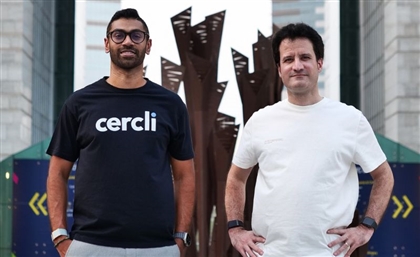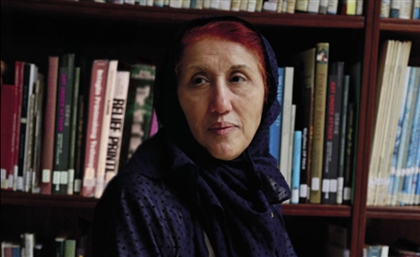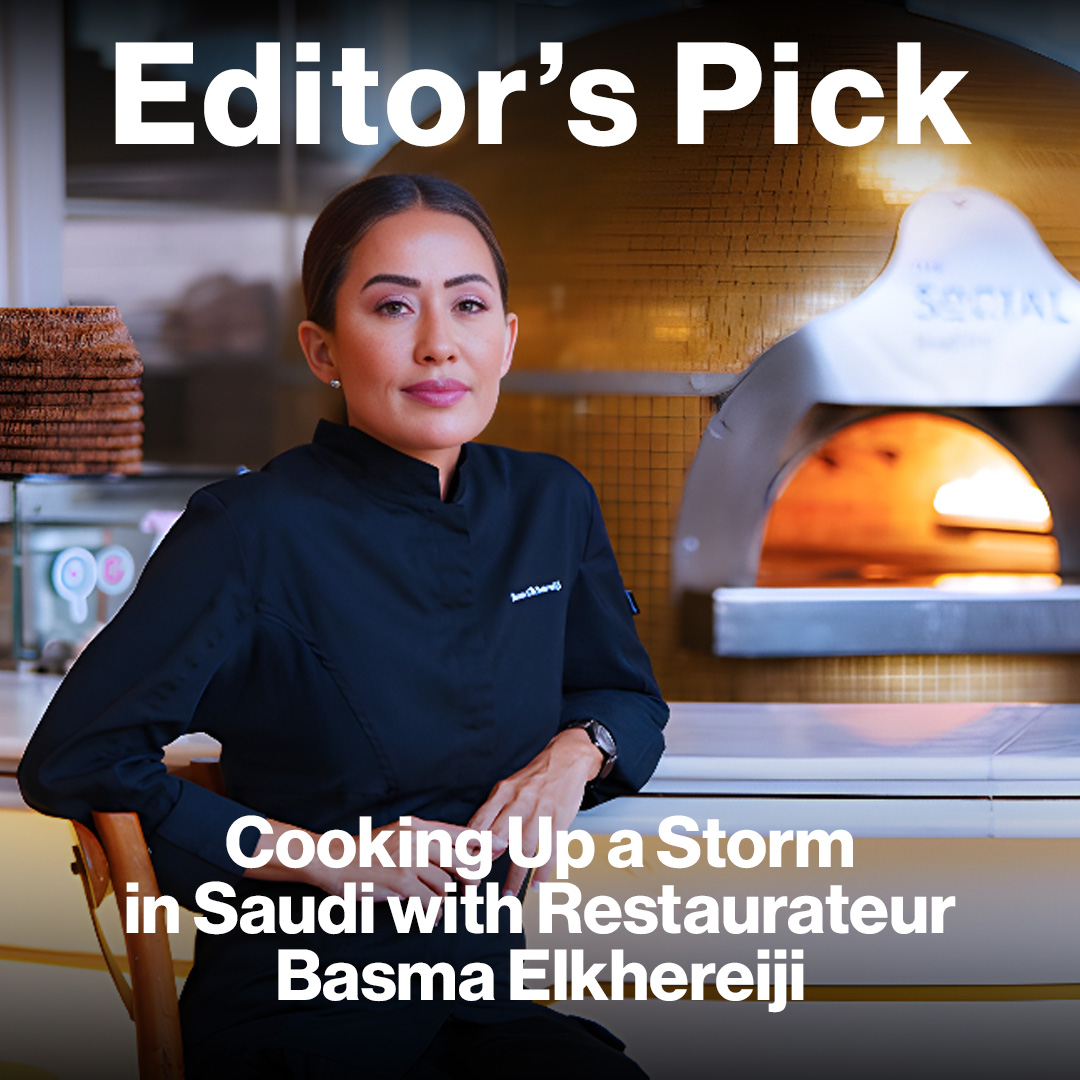Dubai-Based Techno Collective Secta Launch Record Label
After spearheading Dubai’s underground techno scene, Secta’s record label is dedicated to showcase MENA talent to the globe.

From throwing house parties in small living rooms to hosting expansive club nights across Dubai, the Secta Collective has transcended the challenges of event-management, emerging as the torchbearers of the underground techno community. Evolving from its inception as a grassroots movement, Secta has carved its identity in response to the community’s demand for underground spaces, positioning itself at the forefront of the developing alternative techno scene.
Looking to bridge their events series to an auxiliary label, Secta’s upcoming record label launch is dedicated to showcasing MENA-based talent to the region and the world. Their newly announced various artists album, ‘We Are Secta Vol.1’, includes 14 tracks that combine artists from diverse backgrounds, consisting of leading as well as emerging artists, hoisting the Middle Eastern techno scene onto the international stage.
In an exclusive SceneNoise interview, we had the pleasure to speak with co-founders Ju Lovett and Elisa Arienti, both passionate artists and entrepreneurs whose relentless work in unearthing underground talent has underscored the burgeoning talents of regional creatives.
-767e0871-e31f-4a9c-8b6b-d8f52bcfdc83.jpg)
Can you introduce yourselves, what you do, and how Secta came to be?
Ju Lovett: I'm Julian Lovett, I'm originally from the UK, living in Dubai for the last 10 years. I'm one of the founders of Secta, a resident DJ, artist on the label, and involved in various roles within the collective. Over the last two decades, I've been running events, DJing, producing, and previously worked for Egg in London as the global tour manager.
Elisa (Dea): Hi, I'm Elisa. My DJ name is Dea. I'm a co-founder of Secta. I handle graphic design, social media, creative direction, PR, and community engagement for the brand. So, Secta started with house parties, creating a space for underground music and connecting with the alternative crowd in Dubai. As the house parties grew to hosting around 200 people per event in a living room, we realized that Dubai was in need of a space where people could connect and play underground music, so we expanded to club nights. We focused on quality production, emphasizing community, and underground music, and through these three pillars, we felt the need to start something bigger. This led us to start a record label to promote the region's artists globally.
Ju Lovett: When we moved from house parties to a nightclub, we needed a name and a brand and started experimenting with words. I liked the word ‘sect’ for its connotation of people coming together. Elisa suggested adding an ‘A’ to make it sound nicer. Also, in Arabic, it means a musical pause as well. It feels good when you say it, and people resonate with it and it just clicked with the community.
Interviewer: How do you think Secta compares to other labels in the region, and what are your strategies to ensure that it asserts itself as a leading techno label?
Ju Lovett: Well, for now, there are no other labels in the region like it at all. It's the first of its kind, unique for our type of music. Secta has always been about pioneering and moving things forward, and the record label is no different. We want to create a platform where artists from this region are seen on an equal level with artists from anywhere else in the world. It's about changing the narrative and promoting equality, and, musically, we conjoin East and West very well.
Interviewer: How do you feel about Dubai as a musical hub? Do you think it's a propelling force for techno and underground music?
Elisa (Dea): With our experience, it's been tough. This year, especially, we faced challenges with venues and other issues, but despite the challenges, we continuously push even harder. It becomes a drive for us to champion this and say, "No, we need to do this even more because it's hard." Dubai is not the best, but it could become the best. I mean, there's definitely more money to do things here compared to places like Cairo or Amman. There's more potential due to the economic aspect and there's infinite potential if done properly.
Julian Lovett: Culturally, there are issues with having a totally free and open event or nightclub scene. We have to be careful and understand the cultural context as freedom can clash with cultural norms and we have to ensure that we’re doing it right.
Elisa (Dea): Financially, running events here is expensive due to the costs of international artists, licenses, and other factors: our costs are ridiculous compared to what they would be in Europe. It's challenging, but building a community in a place like this has more value than in an already established community. If we went to Amsterdam or Berlin and we started doing parties there, I'm sure they would be successful and great. But, essentially, what would I be adding to that community? It’s already there.
How are you preparing for your launch, and what are you most looking forward to?
Elisa (Dea): Logistics took about six months and we've done the hard part. Now, we're excited to release the tracks, showcase the artists, and highlight the diversity on the label. We have Palestinians, Lebanese, Indians, Pakistanis and more. It's a really good mix of people and we're proud of the quality we've maintained, and the positive feedback from the DJ community is encouraging. So for now it’s in the hands of the PR company and we can sit back and watch
-8755151a-f7f0-463c-81ed-54875ffa50a7.jpg)
What type of audience do you usually attract in your events?
Elisa (Dea): We have a core community, an alternative crowd, and due to Dubai's transient nature, a changing audience. Our crowd is diverse, since a lot of people come in and out of the city, there’s always a rotating crowd of creatives, alternatives, and traditional attendees who aren’t too familiar with techno and these genres. We're happy about the diverse mix and aim to make everyone feel comfortable at our events with our awareness teams that ensure the safety of everyone.
Julian Lovett: In Dubai, it feels very different from Amsterdam or other places. It's unique. The crowd, energy, and overall experience are unparalleled. This uniqueness works well for us, even with the challenges. We aim to export the music and brand internationally, which is quite unheard of for events in this region and would create a knock-off effect for the whole area.
Post-launch, what will your day-to-day operations in terms of representing your artists look like in terms of A&R, digital marketing and anything along those lines?
Ju Lovett: After the launch, day-to-day operations involve working with a PR company to promote the artists. We also utilise social media, press, and various platforms, such as Bolt Sessions in Amsterdam, to build hype and visibility for these artists in their development phase and post-releases. Taking care of artists means supporting them in every possible way, ensuring their music reaches a global audience.
Elisa (Dea): Post-launch, the label plans to focus on showcasing artists more, potentially having single EPs and pushing certain artists more prominently. The goal is to develop long-lasting relationships with artists and make the label bigger.
Ju Lovett: The label wants to evolve, supporting artists well and ensuring their financial stability. Secta's plan is to be more than just a label. We want to bring the collective, including artists and DJs, to different places and showcase the brand globally.
How do you see Secta evolving in the future? Are there any collaborations or projects that are upcoming that are you excited about?
Elisa (Dea): At Secta, we have many exciting collaborations and projects lined up. On December 1st, for example, we’re hosting BCCO from Berlin at Q Underground, another record label and event series that we’ve been friends with for a while. This collaboration is significant as both Secta and BCCO developed around the same time globally doing the same things in different parts of the world. So it's like two labels coming together and it feels amazing to be able to almost bring two sounds together at the same time.
Additionally, there's excitement about a potential new venue in Dubai, a unique space designed for the underground scene.
Ju Lovett: Yes, we’re in talks to create a new venue from scratch with an excellent sound system and layout tailored for the underground scene. This venue would be a significant addition to the region, offering something new and exciting. Secta plans to set base in a new venue starting January 27th next year. The specifics of the interior and development are uncertain, but we are committed to it. If all goes as planned, it will be the region's first proper underground warehouse-style club, comparable to places like Bassiani in Georgia or Berghain in Berlin. There's potential for longer hours, daytime events, and more space to promote local and regional DJs.
Elisa (Dea): We are dedicated to emphasising the importance of having a space where we can promote local and regional DJs more effectively. Dubai currently faces challenges with short event durations, five hours maximum, and limited opportunities to showcase local talent. Our aim is to change this by having spaces that allow for longer sets and more extended event times.
Ju Lovett: The new venue could potentially revolutionise the scene in Dubai, offering a unique experience that stands out globally. We definitely acknowledge the need to navigate Dubai's specific challenges, such as dealing with hotel managers and other regulations. And so we're working towards making the scene in Dubai more conducive for growth, pushing the boundaries musically, in production, and venue-wise. We want to create a space that not only impresses the local community but also garners international attention. The goal is to be a significant addition to the global electronic music scene.
Ju Lovett: Secta has booked more DJs and international dates and plans to expand into Europe next year. The record label will continue to release EPs and singles consistently. We've signed another EP for January and our VA will be released once a year, to showcase different artists annually. The overall strategy involves a three fold course of action: Dubai events, Dubai international events, and the global reach of the record label.
-50f78b22-09b9-4eaf-a1c2-d96825f945db.jpg)
The Middle East is grappling with the dilemma of focusing on developing local talent versus consistently featuring international acts. Despite the emergence of collectives in places like Egypt, Lebanon, Bahrain, and beyond, there's a sense of being constrained under a glass ceiling. Do you believe the scene can overcome this limitation, and how does Secta aim to contribute to bridging that gap?
Elisa (Dea): I think it's somewhat related to the type of music and the popular culture in different parts of the world. Breaking through the glass ceiling, where everyone is on the same level, is a challenge. There needs to be a balance. Musically and in terms of events, we need to diversify the sound. Smaller scenes, like the one we started with, face a lot of challenges at the beginning. It takes time to develop, make mistakes, understand them, and learn from them.
The challenge for emerging scenes is not about the artists or the music, it's the difficulty of being present here. In places like Cairo, where the scene is vibrant, issues with lack of venues hinder growth. Unfortunately, it's still an infrastructure problem and the lack of support from the city. In a way, again, like Dubai maybe could be easier because there's a little bit more space where you can evolve freely.
Ju Lovett: Secta developed not just through music but also by engaging with the community. Building trust was crucial. Nurturing any underground scene requires uniqueness and pushing boundaries in music, production and venue. It's about being in the right place at the right time and seizing the moment.
For underground promoters, the lack of money and the challenge of justifying expenses is a constant struggle. Growing the brand, managing money, and reinvesting every penny are significant hurdles and taking risks is essential. For us, upgrading equipment was a non-negotiable decision. It's about the willingness to invest and not expecting immediate returns.
The region definitely makes it challenging, you can have a very localised underground scene that's successful, but it unfortunately doesn't appeal to a wider audience: but the sentiment is improving. I think it just takes a big breakthrough moment to open the floodgates, inspiring others to see the potential of the region. The dream is to attract electronic music tourism to the region, to experience something that audiences can’t experience and enjoy anywhere else.
- Previous Article سندباد الورد أضحي سلطاناً: مراجعة لألبوم شب جديد والناظر 'سلطان'
- Next Article Egyptian Embassies Around the World
Related Articles
Trending This Week
SceneNow TV
Events Calendar




















